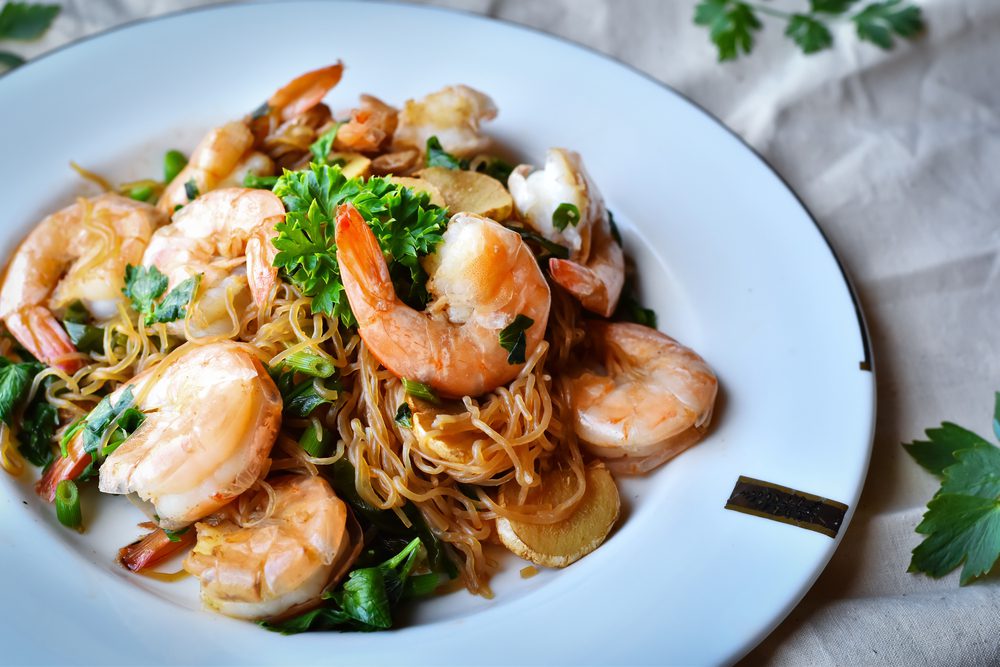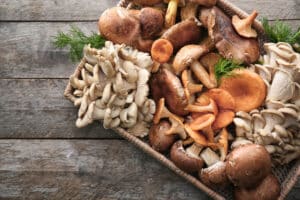
Did you know that 20% of people in the United States suffer from constipation, which results in over 8 million visits to the doctor every year? These numbers are so high, that it makes us wonder what’s up with this symptom.
People might experience this issue when they eat or avoid certain foods, depending on their lifestyle choices, the meds they take, or the medical conditions they suffer from. So for many of them, the cause of chronic constipation is still unknown.
When you’re constipated, you notice that you have fewer than three bowel movements per week, your stools are dry and lumpy, you have difficulty or pain when you pass stools, and overall discomfort when you’re going to the bathroom. If you’re tired of feeling like this and you want to know what can be done, we listed you a couple of natural home remedies you might find helpful:
Best natural remedies against constipation:
Drink more water
You can suffer from constipation if you’re regularly dehydrated. In order to prevent it, it’s highly important to remember to drink enough water throughout the day. When someone suffers from constipation, it might come as a relief to try to drink sparkling water.
Sometimes this can get things to move again. There are a couple of studies that show how sparkling water is way more effective than tap water, especially when it comes to relieving constipation. This also includes indigestion or dyspepsia.
However, don’t confuse carbonated water with sugary soda, as they can make things even worse for you. For example, if you suffer from irritable bowel syndrome (IBS), drinking carbonated drinks will only worsen your symptoms, so you might want to avoid drinking sparkling drinks altogether.
Eat more fiber, especially the non-fermentable one
The first rule against constipation is to increase your dietary fiber intake. That’s because increasing the fiber intake has a great impact on the consistency of your bowel movement, which will make it easier to pass through your digestive system.
There’s a 2016 review that shows how 77% of people with chronic constipation are benefiting from fiber supplements. However, there are also studies that contradict this measure. Apparently, for some people, increasing their fiber intake make things actually worse.
There are also reports that show how dietary fiber is helpful when it comes to stool frequency, but it doesn’t help other symptoms, such as stool consistency, pain, bloating, and even gas.
Exercise more
There are multiple research studies that found how exercising can help improve the symptoms of constipation. According to these studies, sedentary life is directly linked with the risk of being constipated. That’s why some experts recommend increasing exercise to improve your bowel movements.
However, not all studies tend to agree with this. Some show that exercising didn’t have anything to do with the number of times people went to the bathroom, but it reduced some symptoms and improves the overall quality of life.
For example, people who suffer from IBS benefit from moderate exercises, such as brisk walking, because it improves digestive symptoms. BUT, more vigorous exercise, such as jogging, might make things even worse for some.

Drink more coffee, especially caffeinated
For some people, drinking coffee increases the need to go to the bathroom. That’s mainly because coffee stimulates the muscles in the digestive system. There’s one 1998 study that shows how caffeinated coffee affects the gut in the same way as a meal can.
Its effect is 60% stronger than drinking water, and 23% stronger than drinking decaf coffee. One of the reasons that might explain this is the fact that it contains small amounts of soluble fibers, which help prevent constipation by ameliorating the balance of gut bacteria.
That being said, the bowel-stimulating qualities of coffee might be even stronger in people with IBS. It can also make digestive symptoms worse. If you suffer from IBS, try removing caffeine from your diet, to see if anything improves.
Try using Senna, which is an herbal laxative
Senna is a highly popular and effective herbal laxative, which is known to help you treat constipation. You can find it over the counter and online, in oral and rectal forms. Senna has lots of plant compounds known as glycosides, which stimulate the nerves we have in our gut, speeding up bowel movements.
Doctors recommend using Senna, saying that it is safe for adults as long as it is used for short periods of time. However, people should definitely consult their doctors before deciding to use it. Also, doctors would highly recommend pregnant women, those who are breastfeeding, and people with certain health conditions to stay away from this herbal laxative.
Try eating more probiotics foods or probiotic supplements
Probiotics are known to prevent chronic constipation. Probiotics are live, beneficial bacteria that naturally exist in the gut. Some of these probiotics include Bifidobacteria and Lactobacillus. You can increase these levels by eating probiotic foods.
In some cases, chronic constipation comes because of an imbalance of bacteria in their gut. Eating more probiotic foods might improve this balance and prevent constipation. There’s even a 2019 review that shows how taking probiotics for 2 weeks might treat constipation, and increase stool frequency and stool consistency.
You can also alternate with probiotic supplements. There are studies that show how people started to notice the benefits of these supplements after 4 weeks. If you want to try natural probiotics, you can eat yogurt or sauerkraut.
Over-the-counter or prescription laxatives
If you decide on taking laxatives, you should definitely speak to a doctor or pharmacist about choosing the best choice. While there are various methods of action, they are all effective against constipation. You might try:
- bulking agents – these are laxatives that are fiber-based, and they increase the water content in your stool.
- stool softeners – these stool softeners have oils that soften stools and ease the passage through the gut.
- stimulant laxatives – are known to stimulate the nerves in the gut to enhance a proper bowel movement.
- osmotic laxatives – osmotic laxatives soften the stool by pulling water from other tissues into the digestive system.
Try a low FODMAP diet
Constipation can be a serious sign of IBS. That’s why a low FODMAP diet is basically eliminating the food that causes your IBS symptoms to flare up. FODMAP comes from fermentable oligosaccharides, disaccharides, monosaccharides, and polyols.
This diet is based on limiting high FODMAP foods for a brief period of time, before reintroducing them in order to determine which foods are tolerated and well digested. In people who suffer from IBS, the low FODMAP diet alone isn’t enough.
These people will definitely need to pay attention to various aspects of their diet, such as the water and fiber intake. A low FODMAP diet will relieve IBS-related constipation, but you might need to add other measures too.

Eat shirataki noodles or try taking a glucomannan supplement
Glucomannan is a soluble fiber from the roots of the konjac plant. There is research that sustains the effectiveness of this fiber. Glucomannan might act as a probiotic, as it’s known to improve the good bacteria in the gut.
There’s one study that’s been conducted on children that shows how 45% of recipients who took glucomannan noticed relief from severe constipation. People can get this fiber from supplements or by eating shirataki, konjac, and noodles.
Glucomannan supplements are available if you’re interested. They might vary in their benefits depending on the brand, so the best thing to do is to compare brands before purchasing anything.
Eat prebiotic foods
Prebiotics are a type of indigestible carbohydrate fiber. Oligosaccharides and inulin are also prebiotics. Even if dietary fibers are known to reduce constipation by improving the consistency and bulk of stool, they also improve your overall digestive health.
Prebiotic fibers provide beneficial bacteria for the gut, which boosts probiotics and helps balance the gut bacteria. There are some prebiotics that might be super helpful for the frequency of your bowel movements, but also make your stool softer. These are:
- chicory
- Jerusalem artichokes
- garlic
- onions
- bananas
- leeks
- chickpeas
Even so, it’s worth mentioning that garlic and onions aren’t included in the low FODMAP diet as these foods can trigger various symptoms in people who suffer from IBS.
Try magnesium citrate
Magnesium citrate is a very popular home remedy that works well against constipation. It’s a specific type of osmotic laxative that people can easily purchase over the counter or online. By taking moderate amounts of magnesium supplements, you can relieve constipation. Doctors are using magnesium citrate in bigger dosages to prepare and clean out the bowel before surgery and any other medical procedure.
Eat more prunes
People resume eating prunes or prune juice because it’s a natural remedy for constipation. Prunes are probably the most accessible natural solution available. Prunes are rich in sorbitol, which is sugar alcohol rich in laxative effects. There are studies that show how prunes are more effective than fibers, like psyllium. However, people who suffer from IBS might want to avoid prunes, as sugar alcohols are very high FODMAP foods.
If you enjoyed reading this article, we also recommend reading: Early Stage Cancer: 7 Types That Are Almost Impossible to Detect







One reply on “12 Natural Remedies That Reduce Constipation”
Wonderful information.